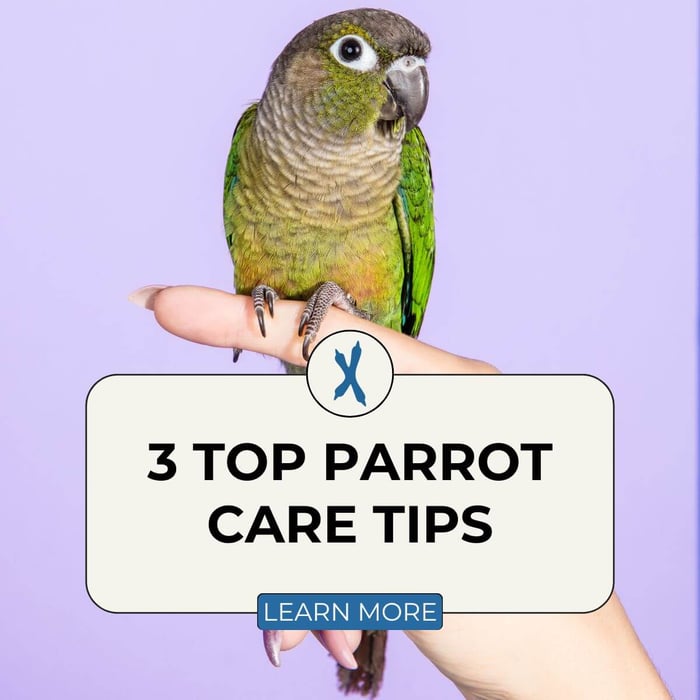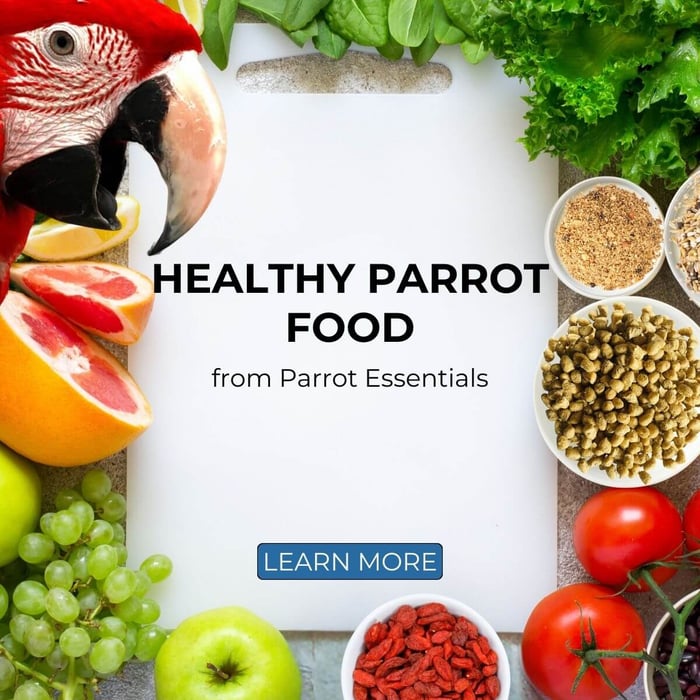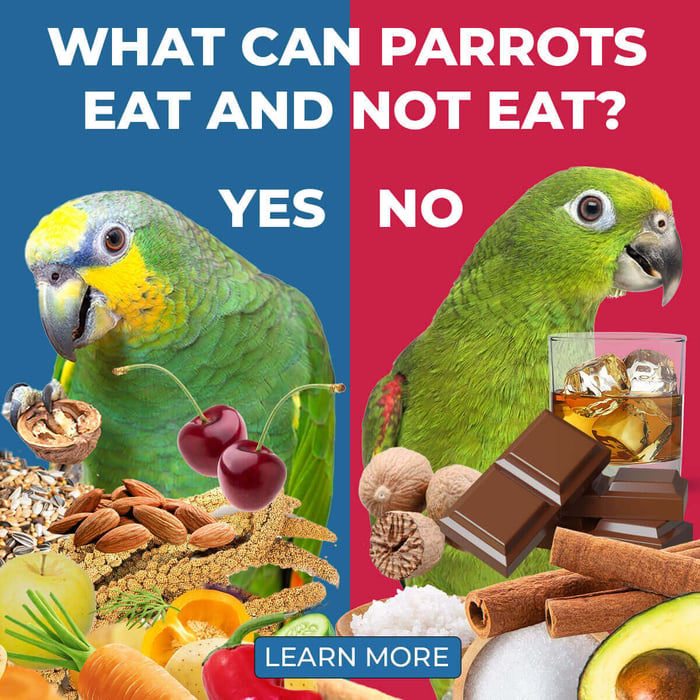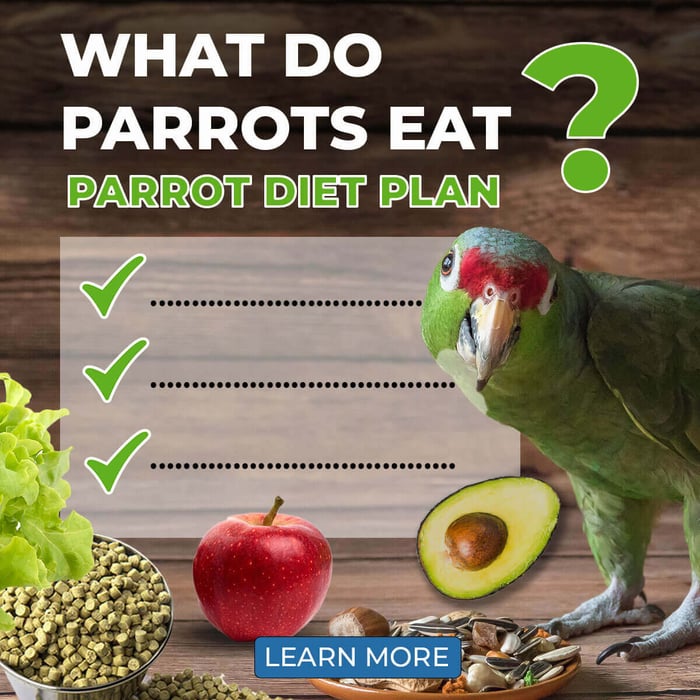Sweet Potato Balls Recipe - Freezable Parrot Treat!
Did you know that making your own parrot treats is super easy? There are loads of different recipes to try, and you don't have to be a chef to make them. Today, let's prepare some healthy, freezable sweet potato balls!

What's so great about these sweet potato balls?
Easy to prepare & customizable
There are many easy DIY recipes for parrots, but these sweet potato balls are particularly simple because they don't have to be baked. Even if you go for the "fancy" version, they only contain five ingredients.
Additionally, this recipe is highly customizable. Aside from the sweet potato, it contains banana and peas, but these can easily be swapped for whatever you have on hand.
Swap the banana for:
- Unsweetened apple sauce
- Pumpkin purée
- Silken tofu
- A flax or chia "egg" (seeds soaked in water)
Swap the peas for:
- Cooked lentils or chickpeas
- Corn
- Firm tofu
- Grated zucchini
- (Blue)berries
Healthy
We've said it so many times here on the blog: your parrot should be eating vegetables on a daily basis, and fruits a few times a week. Even if your bird is on a healthy pellet diet as a staple rather than a fatty seed mix, the additional (micro)nutrients found in fresh produce are still important.
Homemade recipes like these sweet potato balls can make it easier to get reluctant parrots used to eating their veg. And since you make them yourself, you know exactly what they contain: 100% healthy ingredients and no additives.
If they're not convinced just yet, you can roll the balls in seeds or pellets to help encourage your feathered friend to give them a try.

Make feeding time fun
Don't tip the same pellets in the same bowl day in and day out, and leave it at that. Boredom is a huge issue in domestic parrots and can lead to stress and other problems. So, use feeding time as an opportunity for enrichment!
These sweet potato balls are a colourful way to get your bird to try something different. Place them in a foraging toy, like a small cardboard container filled with crinkle paper, to make things even more exciting.
Freezable
To freeze these sweet potato balls, place them on a baking tray (make sure they don't touch) and pop them in the freezer. Once they're frozen solid, you can place them in a bag together. This way they don't stick.
No more excuses of not having veggies on hand to give your bird! Just thaw a sweet potato ball and your feathered pet's daily serving of fresh food is sorted.
Sweet Potato Balls For Parrots
Equipment

- microwave
Ingredients
- 1 large sweet potato
- 1 banana
- 1.5 cup rolled oats
- 1 cup fresh or frozen peas
- 1/4 cup birdseed (optional)
Instructions
- Use a fork to poke holes into the skin of the sweet potato and pop it into the microwave until soft. This should take 5-10 minutes, depending on your potato and the wattage of the microwave.
- Leave the potato to cool while you mash the banana and peas.
- Once the sweet potato has cooled, remove the skin and mash it into the mixture.
- Add the rolled oats and mix them well. Leave the mixture for five minutes so the oats can soak up any excess liquid.
- You should now have a mixture that’s the perfect consistency for rolling the sweet potato balls. If it’s too wet, add some more oats; if it’s too dry, some water will help.
- Optional: Once you’ve finished rolling the mixture, you can spread some birdseed on a baking sheet and roll the balls over it to cover them. This should help to motivate your bird to try them if it isn’t used to eating veggies and other new foods yet.
- Feed a sweet potato ball now and freeze the rest for later!
Feeding Guidelines for Parrot Treats
Treats should be just that—treats. They should not replace a parrot's main diet but supplement it. Generally, treats should make up no more than 10% of a parrot’s total daily food intake.
For small parrots, such as budgies or lovebirds, a few small pieces (about the size of a pea) per day are sufficient. For larger parrots, like macaws or African greys, a larger portion (the size of a marble) can be offered.
It's essential to consider the overall caloric intake and nutritional balance when determining the quantity and frequency of treats. Overfeeding, even with healthy treats, can lead to obesity and other health issues.
Nutritional Benefits of Key Ingredients
Sweet Potatoes

Sweet potatoes are a nutritional powerhouse for parrots, offering a rich supply of vitamins A and C, manganese, and potassium. They are also high in dietary fibre and beta-carotene, an antioxidant. Vitamin A is essential for maintaining healthy skin, feathers, and eyesight, while vitamin C boosts immune health and aids in wound healing. The fibre content ensures good digestive health, and antioxidants like beta-carotene help protect against cellular damage.
Bananas

Bananas provide a good source of potassium, vitamins C and B6, manganese, and dietary fibre. Potassium is vital for fluid balance and nerve function, while vitamin B6 supports cognitive development and red blood cell production. The fibre in bananas aids in digestive health, and vitamin C acts as an antioxidant, enhancing the parrot's immune system.
Oats

Oats are beneficial in a parrot's diet due to their high content of protein, fibre, and essential nutrients like magnesium, zinc, and B vitamins. Protein is crucial for tissue repair and feather maintenance. Fibre from oats promotes healthy digestion, and minerals like magnesium and zinc support metabolic and immune functions. B vitamins are important for energy metabolism and maintaining overall health.
Importance of These Nutrients
Together, these ingredients contribute significantly to a balanced diet for parrots, ensuring they receive a mix of essential vitamins, minerals, and fibre. This combination supports various bodily functions, from immune health to digestion, and helps prevent nutritional deficiencies. Incorporating these foods into a parrot's diet not only enhances their health but also adds variety to their meals, making eating more enjoyable and stimulating.
Conclusion
These freezable sweet potato balls for parrots are easy to make and the perfect way to ensure you've always got healthy parrot treats on hand. What's your favourite homemade parrot treat recipe? Be sure to tell us in the comments!




